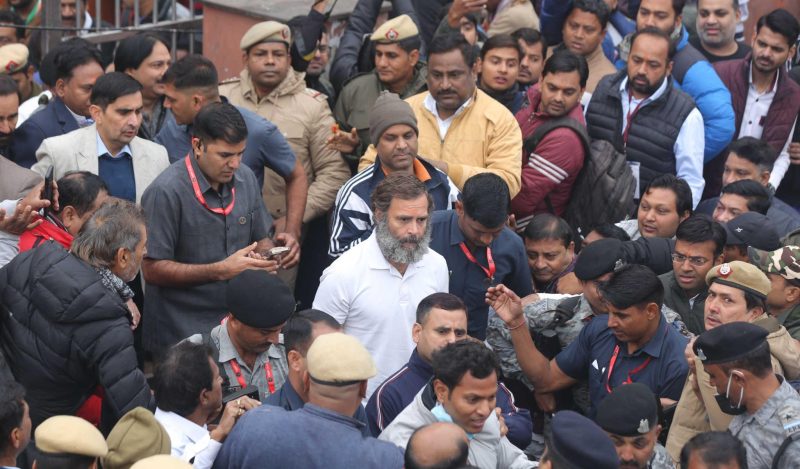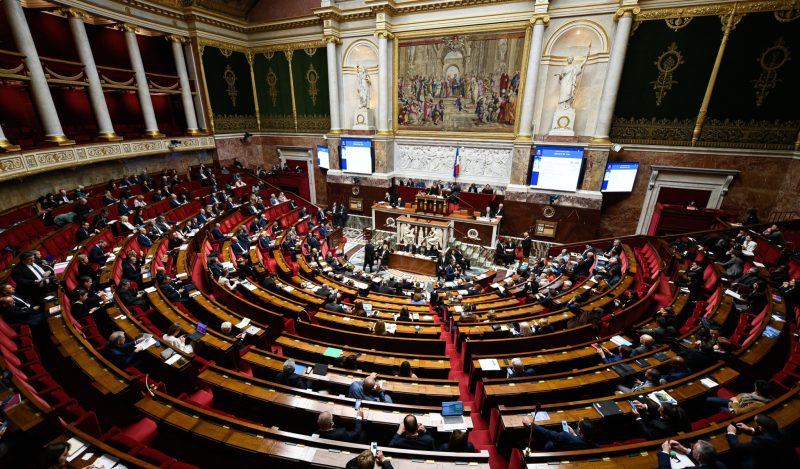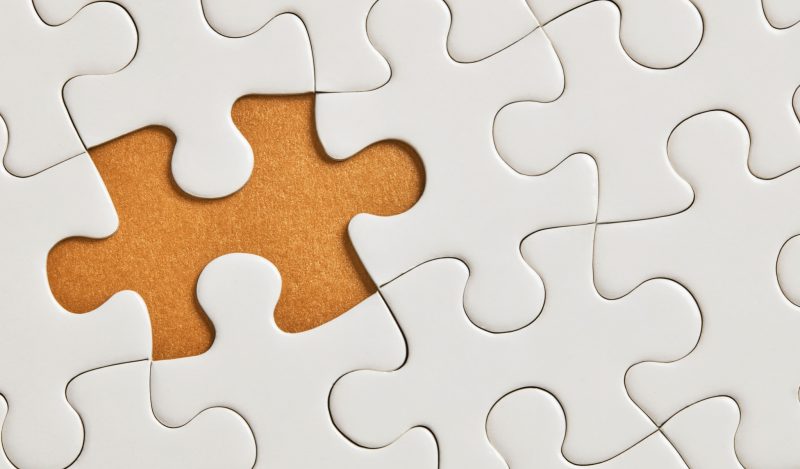The United States is the world’s oldest, most powerful and most consequential democracy for the future of free peoples everywhere. India is the world’s most populous, rambunctious, exuberant and infuriating democracy whose greatest symbolic significance has been as a standing refutation of the facile thesis that liberal democracy dooms poor developing countries to failure.
The US is crucial for the continued lifting of millions of Indians out of Asiatic poverty and for strengthening India’s preparedness against many external security threats. India in turn is critical to the US to meet the strategic challenge of China in the Indo-Pacific through a values-based partnership of democracies committed to the freedom of the seas and the primacy of the law of the sea.
Last week both countries came under threat from the same banana republic playbook that has afflicted and condemned so many countries and peoples to capture by dictators and tyrants. For the first time in both countries, national leaders of defeated political parties faced criminal sanctions because of the abuse of state power by the victors. The cases represent a corruption of justice in each country and constitute grave threats to both republics.
I refer, of course, to the criminal indictment of Donald Trump by a New York grand jury and the conviction of Rahul Gandhi and imprisonment for two years by a court in Gujarat, followed swiftly by his disqualification from Parliament as an elected member. Most legal analysts seem to believe that the case against Trump is very weak and he is likely to be acquitted. Similarly, it would not be at all surprising for Gandhi to be acquitted on appeal.
Liberal Democracy: A Quick Primer
Democracy confers procedural legitimacy on the struggle for political power. As a concept, liberal democracy is both descriptive and normative. It is simultaneously a set of organising principles for governing a polity (civil liberties, legal equality, rule of law, private property), and a corresponding set of structures and institutions in which these principles are embedded as core constitutional values (popular elections, accountable government, majoritarian decisions, independent judiciary, free press and so on).
Law functions both as a licence, enabling the state to translate majority policy preferences into duly enacted statutes; and as a leash, setting limits to state power and reach that may not be transgressed. The democratic legitimacy of majority rule cannot override the protection of minority rights. Checks on executive overreach and abuse of power are essential attributes of liberal democracy, not optional add-ons or luxury trimmings to be discarded when inconvenient.
Under modern conditions, the contest of ideas is conducted by organised political parties, culminating in elections. The winning party gains control of the levers of government to give effect to majority policy preferences.
There is a peaceful transition of power following established procedures, protocols and rituals. The most visible symbol of stable liberal democratic polities is not so much elections per se, but the presence of many former heads of government and state at the solemn swearing-in ceremony.
Capturing political power and then using the levers of state power to suborn the social purpose of the state to private ends corrupts and destroys the polity. Dictators enrich themselves by raiding public coffers, on the one hand; and abuse the instruments of power and the institutions of state to pursue, harass, intimidate and sometimes even liquidate political rivals on the other. Such tactics are the hallmarks of banana republics.
Rahul Gandhi in India: Karma Comes Calling
There is one crucial difference between the two cases. Rahul Gandhi is the inheritor of the Nehru-Gandhi dynasty and as such is the de facto leader of the Congress Party. His travails show the dangers of Americans choosing to walk down the path of politicising the institutions of state, using state power to persecute partisan rivals and weaponising the criminal justice system to harass and take out political opponents through lawfare, instead of engaging them in political contests in the electoral arena.
Yes, India has been backsliding in democratic practices under Prime Minister (PM) Narendra Modi. I have written very critically of that and also of Modi’s failure to protect India’s Muslims against threats from Hindu supremacists. The Modi government appears to be practising dictatorship by other means. The assault on even slightly critical media, NGOs, intellectuals, and political opponents has been pervasive, deploying a wide array of state agencies to investigate and harass and a willing army of social media trolls to bully and intimidate.
Yet, an important reason for the current sorry state of affairs is the extent to which the constitutional values and institutional pillars of India’s democracy were corrupted in the decades after independence in 1947, during which the Congress Party held dominant sway both federally and in several states. The subversion of secularism in the endless pandering to and appeasement of Muslim votes, and the dismissal of rising Hindu resentment as the voice of the deplorables, was the key to unlocking the Bharatiya Janata Party’s (BJP) pursuit of Hindu majority votes.
Similarly, the coercion and subversion of India’s media, whether it be through public institutions, tax authorities, or investigative and enforcement agencies, is a legacy inherited by the BJP from successive Congress governments. I left India in 1971. Until then All India Radio held a monopoly on radio broadcasts and was popularly known as All Indira Radio, referring to Rahul’s grandmother Indira Gandhi who subsequently ruled as an all-powerful dictator under Emergency powers in 1975–77.
Over the six decades of Congress Party dominance, the institutions of state were steadily politicised even as the reach of the administrative state grew stronger. Investigative and law enforcement agencies were used to harass and pursue Modi when he was Chief Minister (CM) of Gujarat. The Indian government failed to stand up for his rights as the elected CM of Gujarat when some Western governments refused him travel visas for alleged human rights violations.
The bans were lifted with quiet embarrassment when Modi was elected prime minister. The tables were then turned and it was suddenly payback time. The once independent and impartial state institutions had been so weakened and compromised that they could not stand up to the demands of the changed government.
By now all the institutions of state have been so thoroughly captured and tamed that Pratap Mehta, one of India’s most thoughtful commentators, asks if the Modi government would or could possibly concede electoral defeat and accept a peaceful power transition to a non-BJP rule.
So yes, the lights of India’s democracy are going off one by one. But they began to be dimmed long before Modi appeared on the political scene. Having sowed, the Congress Party is reaping the whirlwind.
Democrats, take heed.
Trump in the US: “Show me the man and I’ll show you the crime”
The political vengeance against Gandhi dressed up in legal garb could yet turn him from an unserious figure of fun into a political opponent to be reckoned with. In fact it’s hard to comprehend the government’s pursuit of him other than to believe they must fear his new-found political pulling power.
The same perverse blowback may also occur in the US. Speaking at a rally in Waco, Texas on 25 March, Trump warned: “Either the deep state destroys America or we destroy the deep state.” This is the campaign theme twin to his tweet of 19 December 2019: “In reality they’re not after me. They are after you. I’m just in the way.”
In both cases, the powers-that-be chose the targets first and then looked for a crime to hang on them. Both look like martyrs being persecuted – sorry, that should read prosecuted – either because their political fortunes are reviving, and/or because the incumbents want them to be the main focus of attention in order to energise and motivate their own base.
As an outside observer, my conclusion in both 2016 and 2020 – setting aside all the statistical anomalies that put an asterisk on the legitimacy of the final tally – was that the candidate who antagonised the most number of voters determined the outcome. Hillary Clinton ‘won’ the contest to repel in 2016 and Trump in 2020.
The site of Trump’s indictment and trial is a city that voted 80 percent for Joe Biden. The Democratic identity of the district attorney compounds the transparent travesty of someone who has become a byword for refusing to prosecute “low level” misdemeanours like prostitution, suddenly reversing course in the case of Trump to prosecute the payment of hush money to a porn actress. His conviction by a Trump-hating Manhattan jury will only cement New York’s reputation in the deplorables-inhabiting US heartland as the very embodiment of big city sleaze, corruption, and decadence.
The indictment compels primary rivals to defend Trump and all but assures him of the party nomination, even if the election is too far out to predict with any confidence whether the reminder of troubles that hang around Trump will turn off more voters than will be energised to vote for him because they are outraged at the corruption of the US criminal justice system.
We are in uncharted territory.
Yet two things are clear. First, the charges against Trump are transparently confected and as such are a threat to the foundational principle of US constitutional democracy: the impartial and neutral administration of justice in which no one is either above the law to escape its reach, or beneath the law, to be denied its equal protection. Tawdry, yes – but the very tawdriness provides the explanation for the action. Trump could argue he was motivated by the desire to protect his marriage, not his career.
It smells of a desperate attempt to Get Trump, on anything. It validates and feeds Trump’s Deep State conspiracy: they are out to get him because he is all that stands in the way of the swamp dwellers.
The evidence is gossamer thin. The misdemeanour at the heart of it has already escaped the statute of limitations. The DA wants to link it, using inventive legal theory, to other alleged crimes in a package deal. Federal prosecutors had already passed on the possible election malfeasance case owing to its weakness.
Second, as has happened with Rahul Gandhi, the convention of not going after former presidents having been breached, the bitter partisanship that runs down the spine of America to make its politics so utterly dysfunctional will in time ensure payback for Democrats. Starting with the target-rich Hunter Biden dealings.
America will become even less governable, less politically stable and less socially cohesive.
For decades, the US has tried to export and universalise bedrock American values like the rule of law, civil liberties, political freedoms, and democratic practices. Now it is internalising some foreign policy vices like selective justice against unfriendly regimes while running protection for friendly ones.
Thus it is that the US backs action by the International Criminal Court, which it has not joined, against President Vladimir Putin today, but the Trump administration threatened the same ICC with sanctions and arrests for the temerity to suggest that some US and Israeli actions could constitute war crimes and should be investigated to that end.
The only thing that can rescue the principles and institutions of liberal democracy in both India and the US is if those who have subverted the justice system are themselves subjected to the full force of the law for their violations of the most sacred public tryst. Don’t hold your breath.
History Does Irony
To finish this sobering analysis on a lighter note: the newly elected First Minister of Scotland is Humza Yousaf. The Glasgow-born son of Pakistani immigrants has indicated that independence for Scotland is high on his priority list.
The PM of the UK is Rishi Sunak, the Southampton-born son of Punjabi-origin parents who migrated to Britain via East Africa.
Yousaf is a practising Muslim and Sunak is a practising Hindu. Sunak’s paternal grandfather was from Gujranwala in Pakistan while one of Yousaf’s grandparents was born in Gujarat in India.
If the Scots do vote for independence, then a Muslim of Pakistani origin and a Hindu of Indian origin will decide on the Partition of the United Kingdom.
Savour the thought but dread the outcome.
Published under a Creative Commons Attribution 4.0 International License
For reprints, please set the canonical link back to the original Brownstone Institute Article and Author.









